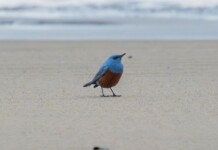Happy 70th birthday to one of the greatest American documentarians, Ken Burns. His gargantuan resume of deep dives into uniquely American topics has stirred the minds of viewers for a generation with his unique blend of still photography and video footage with voice-overs. His widely known documentary series include The Civil War (1990), Baseball (1994), Jazz (2001), The War (2007), The National Parks: America’s Best Idea (2009), Prohibition (2011), The Dust Bowl (2012) The Roosevelts (2014), The Vietnam War (2017), and Country Music (2019). This staggering workload has won him 7 Emmys, as these films premiere on PBS Television. READ more about the American filmmaker…
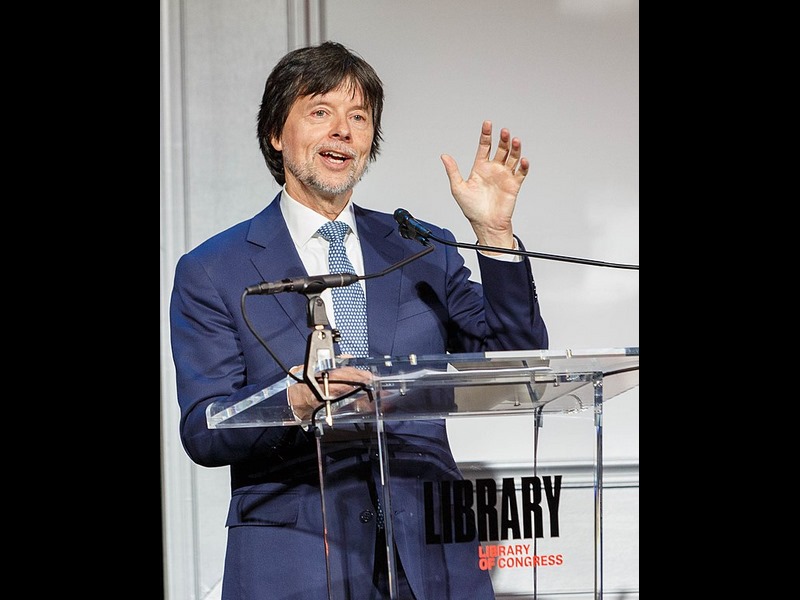
It was Burns’ work on adapting David McCullough’s book The Great Bridge, about the construction of the Brooklyn Bridge, that led to him developing a signature style of documentary filmmaking in which he “adopted the technique of cutting rapidly from one still picture to another in a fluid, linear fashion [and] then pepped up the visuals with ‘first hand’ narration gleaned from contemporary writings and recited by top stage and screen actors.”
As large as his film collection spans, he’s secured work well into the 2030s, including pieces on Lyndon Johnson, Barack Obama, the Mayo Clinic, Muhammad Ali, Ernest Hemingway, the American Revolution, Winston Churchill, the American criminal justice system, African-American history from the Civil War to the Great Migration, and the effects of the Holocaust in America.
MORE Good News on this Day:
- The Arc de Triomphe was inaugurated in Paris (1836)
- The Society of Independent Artists was co-founded in Paris by Georges Seurat (1884)
- Sir Robert Baden-Powell set up the Brownsea Island Scout camp in Poole Harbour, England; regarded as the founding of the Scouting (1907)
- The International Atomic Energy Agency was established to promote the peaceful use of nuclear energy and to inhibit its use for military purposes—by providing technology, expertise, and training to guide those who want to harness the atom for the benefit of mankind—by improving food supplies, health care, and sources of energy (1957)
- Eric Clapton, Jack Bruce, and Ginger Baker played their first concert as Cream, the band whose third album, Wheels of Fire, was the world’s first platinum-selling double album (1966)
- Minamata Bay in Japan, once a worldwide symbol of industrial pollution, was declared free of mercury 40 years after contaminated fish were blamed for deaths and birth defects (1997)
- Boston Red Sox batter Bill Mueller became the first player in Major League Baseball history to hit grand slams from both sides of the plate (left and right-handed) in a single game in a 14-7 win at Texas (2003)
- A high school football captain in Osseo, Minnesota created a Twitter account, @OsseoNiceThings, to say nice things about classmates after noticing they were the object of ridicule on social media– soon afterward the bullying ceased (2012)
42 years ago today, thousands lined the streets of London to catch a glimpse of Britain’s Prince Charles and Lady Diana Spencer on their wedding day. A worldwide television audience of over 700 million people watched the ceremony, held at St Paul’s Cathedral.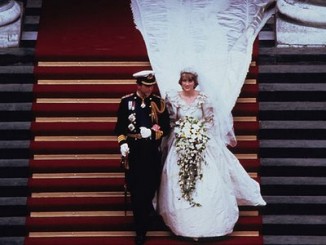
Diana first met Charles, Prince of Wales, the Queen’s eldest son and heir apparent, while she was 16 and he was 29 and dating her older sister. 3 years later she watched him play polo and he took a serious interest in her as a potential bride.
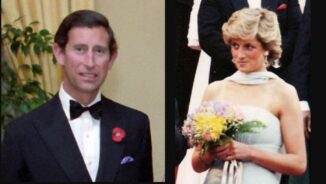
The relationship progressed, and when she meet his family in late 1980, she was very well-received by the Queen and her family. The couple raised two sons, but divorced in 1996 due to incompatibility and extramarital affairs—particularly his, which began five years into the marriage. (1981)
Also, on this day in 1958, the National Aeronautics and Space Administration (NASA) was created. The U.S. Congress was spurred to create the federal agency by the Soviet Union’s launch of Sputnik, the first orbital satellite. Two of the goals were to expand human knowledge of the Earth’s atmosphere and space, and the improvement of space vehicles.
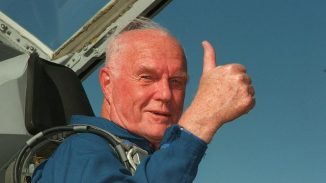
The phrase “We came in peace for all mankind”, inscribed on a plaque left on the Moon by the crew of Apollo 11, is derived from the agency’s founding principle: It is the policy of the U.S. that activities in space should be devoted to peaceful purposes for the benefit of all mankind.
Three of NASA’s most impressive achievements have been the Apollo Moon landing, the Skylab space station, and the Space Shuttle reusable rocket. WATCH a 60th-anniversary message from the International Space Station for all of us on Earth…
And, on this day in 1954, The Fellowship of the Ring, the first book of the Lord of the Rings trilogy, was finally published by J. R. R. Tolkien in England. It took 17 years for the author to pick up the trail again from The Hobbit, the popular first book of Bilbo’s epic journey in the fictional universe of Middle-earth.
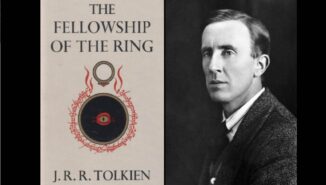
In the first chapter of the book, Bilbo Baggins celebrates his 111th birthday, and at the party he departs from the Shire (the land of the Hobbits) for what he calls a permanent holiday. He does so by suddenly disappearing, using the power of the magic ring that he had found on his journey in The Hobbit. He is aided by a wizard, Gandalf, who produces a flash and puff of smoke. Bilbo leaves his younger cousin Frodo Baggins his remaining belongings, including his home and the Ring. It becomes apparent that Bilbo has been quite anxious over the past several years, and he is at first entirely unwilling to give up the Ring, which concerns Gandalf. Eventually, he tears himself away from its allure—and appears to be relieved of a huge burden. Gandalf leaves business, warning Frodo to keep the Ring secret. It makes us want to reread the book—or watch the movie.
58 years ago today, The Beatles’ film Help! had its world premiere in London with Princess Margaret in attendance at the London Pavilion.
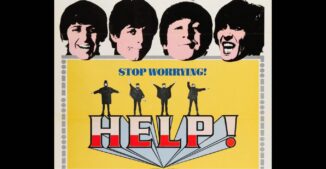
The band’s second feature film, it stars The Fab Four engaged in delightful banter while trying to protect Ringo Starr from an Eastern cult and a pair of mad scientists, who all want Ringo’s ring.
The soundtrack LP that included Help! and Ticket to Ride, was nominated for Album of the Year at the Grammys—the first time a rock band appeared in that category. It also featured songs not in the film, like the most-covered hit single ever written, Yesterday.
The gregarious movie with its choreographed scenes of the group skiing in the Alps was influential in shaping the development of music videos decades later. WATCH the original 3-min trailer… (1965)
SHARE the Milestones, Memories, and Music…


